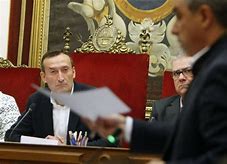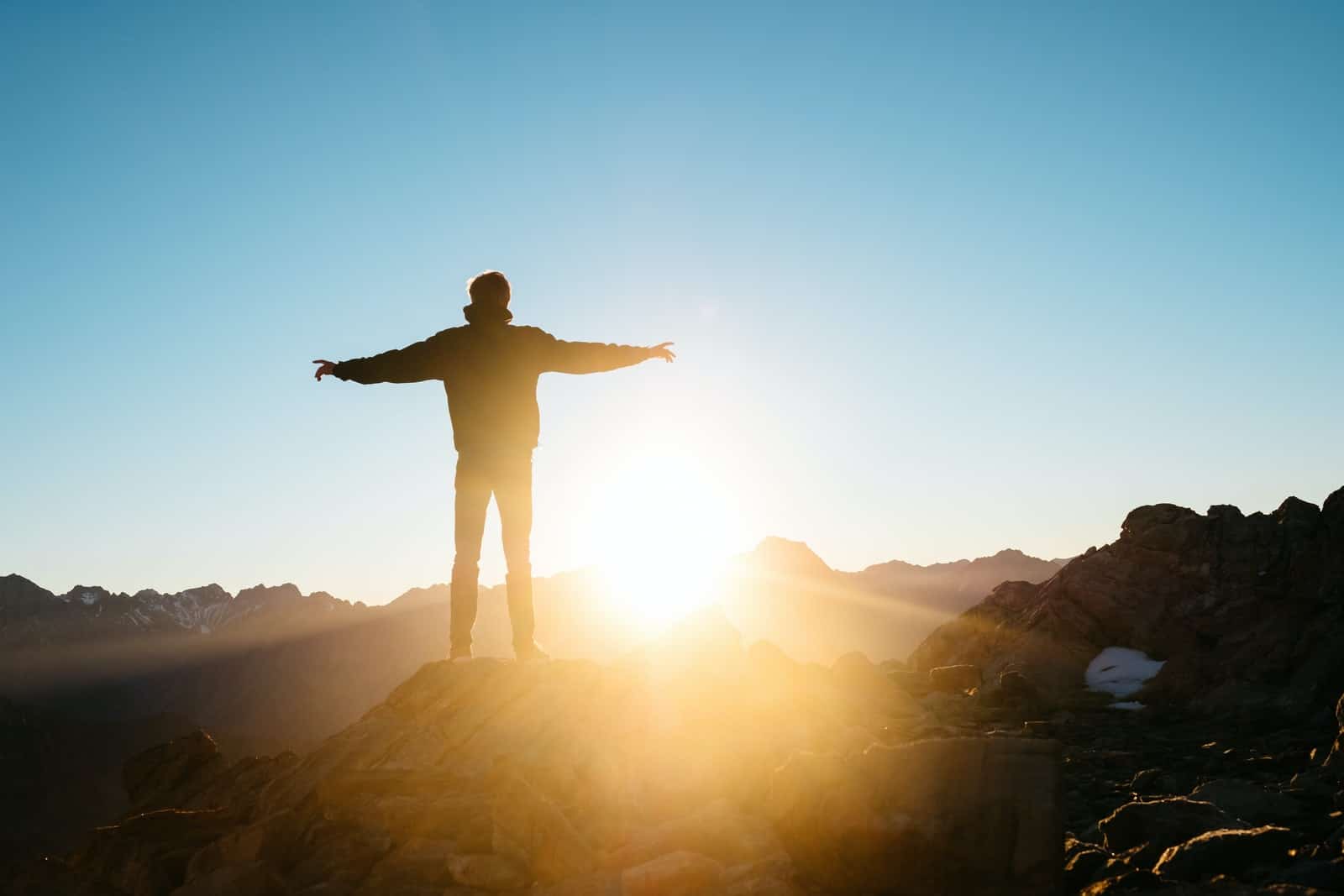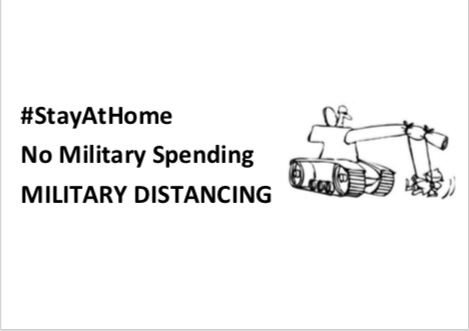By Vasco Fronzoni at freedomofbelief.net
The Italian Muslim communities have faced the challenge of contagion with a pragmatic spirit. As it known, Islam does not recognize universal leaders, and therefore chooses on the basis of the general reference principles, which in the case of epidemics refer to a hadith that prescribes «if you hear of a plague in a land do not enter it; and if it breaks out in the land where you stay, do not leave»[1]. Muslim communities in Italy have given consistent indications with this substantial precautionary principle, stopping the movements generally linked to production activities; remaining on Italian territory despite being the one most penalized by contagion after China; closing prayer rooms and mosques to avoid contagions, in line with government regulations. It should be noted that this attitude is grafted on the homologous attitude of the ecclesiastical authorities, who have indicated to the faithful alternative ritual paths by accepting the limitations imposed by governments[2].
In addition, Muslims in Italy are particularly notable for their concrete, supportive attitude, which follows their contribution capacity and which goes beyond any confessional boundary, which essentially recalls the obligation of zakat, one of the pillars of Islam. For Muslims, solidarity practices and philanthropic acts not only affect a social attitude but also constitute an essential element of religious practice. In this respect, the principle of solidarity is a key element of the whole Muslim society, basic as Buddhist ethics of compassion and the Christian commandment of love for neighbor[3].
In Islam, brotherhood of faith replaced the ancient clan, tribal, race and ancestry ties that existed in the pagan era «The believers are but brothers» (Quran, XLIX, 10)[4], generating a sense of belonging that is concretized in a spiritual and material solidarity, according to the Quranic precept: «And cooperate in righteousness and piety» (Quran, V, 2). Based on this principle, the Islamic community takes care of both spiritual and material well-being: «Worship Allah and associate nothing with Him, and to parents do good, and to relatives, orphans, the needy, the near neighbor, the neighbor farther away, the companion at your side, the traveler, and those whom your right hands possess. Indeed, Allah does not like those who are self-deluding and boastful» (Quran, IV, 36). The primary function of altruistic activities in Islam is therefore to achieve an equitable distribution of income and wealth in different ways, through direct donations from the rich to the poor, with projects of assistance for disadvantaged people and programs for community development, or trough targeted interventions that will enable the poor to become economically more autonomous[5].
Based on these shariatic references directed to humanitarian action, the Italian Muslim community stood out for the following initiatives, monitored from the beginning of the health crisis.
Some initiatives have also been recorded in the international arena, like those adopted by countries such as China and Russia. Intra-Islamic cooperation, in fact, stood out for the humanitarian activism undertaken to support Italy and the Muslim communities present in the territory in the fight against the spread of the virus through substantial donations.
- March 23, 2020. The Muslim community in Alexandria has decided to participate in the solidarity initiatives undertaken to deal with the Coronavirus epidemic by announcing that it wants to create an internal fundraiser to donate to the local hospital, and in the meantime, they have organized a blood donation[6].
- March 23, 2020. The Essalem cultural association of Fornovo donated € 2,700 in favour of the Fornovese Green Cross in aid of the commitment to fight the epidemic[7].
- March 23, 2020. The Muslim community of Forlì donated € 7,000 to the local health agency (Ausl)[8].
- March 23, 2020. The Muslim community in Imola through its association House of Islamic Culture donated € 1,000 euros to the local health agency[9].
- March 24, 2020. In Bergamo, the local Muslim community, through the Toubkal association in collaboration with Muslim Young-BG and the Muslim Association of Bergamo, set up home delivery of groceries and medicines for the neighbourhood and for elderly people in need[10].
- March 25, 2020. The Muslim community of Bassano del Grappa has launched an online fundraiser for donations to the San Bassiano hospital[11].
- March 26, 2020. The Islamic cultural association of Ticino has decided to contribute to solidarity initiatives against the spread of Covid-19 by donating the sum of € 1,500 to the Municipality of Castelletto Sopra Ticino for the purchase of health disposals. Fundraising continues through a dedicated online platform and the local Islamic community solicit to donate in favour of the Volunteer Ambulance Corps, Civil Protection and Hospitals[12].
- March 26, 2020. The hospital of Manerbio received € 1,800 from fundraisers promoted by the Islamic association Chorouk that invited the local community to continue donating what it can to fundraising for the Garda health agency[13].
- March 27, 2020. The Muslim community of Carnate, through the local cultural center, made a small but significant donation to the AVPS association of Vimercate, whose volunteers serve in the nearby hospital[14].
- March 30, 2020. The Muslim community of Sermide and Felonica, in the province of Mantova, made a donation through the Amici della Pace Association a contribution to the local hospital[15].
- March 30, 2020. The Islamic Cultural Center of Brescia has donated € 7,000 to the Spedali Civili di Brescia and is also engaged in the distribution of food at home for families who are in a state of difficulty and who are unable to benefit from social safety nets[16].
- March 31, 2020. The Islamic Culture Center of Cuneo has launched a fundraiser in favour of the local Santa Croce Hospital, appealing to the entire Muslim community and to all the citizens of Cuneo to support operators engaged in the front line to contain the advance of the Coronavirus epidemic in the city[17].
- April 1, 2020. The fundraising organized by a collective of 13 different Muslim associations in the province of Brescia yielded € 55,805, donated to the Fondazione Comunità Bresciana onlus in favour of the public health system[18].
- April 1, 2020. In Carpi the local Pakistani community donates € 10,000 for the fight against Coronavirus and the mayor has publicly thanked the community from his facebook page[19].
- April 2, 2020. The Muslim community of Crema has collected € 4,450 in favour of the local hospital, reporting on the bank transfer “Covid-19 emergency”[20].
- April 6, 2020. The Muslim community of Reggio Emilia donates € 56,000 to the structures involved in tackling the epidemic in the city and the mayor has publicly thanked the Muslim families who contributed to the fundraising[21].
- April 6, 2020. Even DailyMuslim, the online newspaper of Italian Muslims, through Nexilia, the network of digital solutions for independent publishers, has decided to contribute during the Covid-19 emergency, by donating all the advertising revenue generated on the home pages of the network sites to Italian Red Cross, through the #RestoInHome campaign[22].
- April 11, 2020. The Muslim community of Catania has donated € 6,000 in health disposals (gloves, masks, disinfectant) to the local Garibaldi hospital, also launching a fundraiser and continuing the distribution of food packages for families in need[23].
- April 11, 2020. The Muslim community of Santa Croce sull’Arno donated some founds to the Coronavirus Pisa Mutual Aid Fund, set up by the Società della Salute Empolese Valdarno Valdelsa, receiving public thanks from the Mayor[24].
- April 13, 2020. The Muslim community of Perugia and the local Muslim donor group AVIS responded with great participation to the request for blood[25].
- April 14, 2020. The Islamic centres in Lughese Area (Lugo, Fusignano, Alfonsine, Massa Lombarda, Cotignola, Conselice, Lavezzola and Bagnacavallo) collected and donated € 22,670 to the Umberto II hospital in Lugo, to counteract the health emergency[26].
- April 14, 2020. The Islamic cultural association Amici Del Valdarno has launched a volunteer project aimed at people who are unable to go out for shopping because of the epidemiological emergency. The initiative made in collaboration with the Islamic Federation of Toscana and the Red Cross of Figline and Incisa Valdarno provides the door shopping service for families in need[27].
- April 15, 2020. A group of women from the Islamic association of Molinella, with a collaboration and social help spirit, create 7400 masks and donate them to the local citizenship in help to counter Coronavirus.[28]
Some initiatives have also been recorded in the international arena, like those adopted by countries such as China and Russia. Intra-Islamic cooperation, in fact, stood out for the humanitarian activism undertaken to support Italy and the Muslim communities present in the territory in the fight against the spread of the virus through substantial donations. - April 8, 2020. The World Muslim League, known for being the most important NGO in the Islamic world based in Mecca, has donated 1 million dollars to Italian civil protection as a contribution to combat the spread of Coronavirus[29].
- April 9, 2020. Qatar has sent two field hospitals to support the Coronavirus emergency in Italy[30].
Submitted: April 22th 2020. Published: April 30th 2020.
Taken from: DiReSoM Papers 1, Law, Religion and Covid-19 emergency, Edited by Pierluigi Consorti, May 2020
DiReSoM (Diritto e Religione nelle Società Multiculturali – Law and Religion in Multicultural Societies) is a research group created in 2017 by Italian Scholars in Law and Religion. [https://diresom.net]
Notes:
[1] ⬆︎ Al Bukhari, Sahih, Al-Maktaba al-‘Asriyya, Beyruth, 1427 H., IV, n. 5728.
[2] ⬆︎ A. Fuccillo, La religione “contagiata” dal virus? La libertà religiosa nella collaborazione Stato-Chiesa nell’emergenza covid-19, in Osservatorio delle Libertà ed Istituzioni Religiose, www.olir.it, 21/04/2020.
[3] ⬆︎ H. Kung, Islam: passato, presente e futuro, Rizzoli, Milano, 2005, p. 685.
[4] ⬆︎ For Quran, it was used the revised edition edited by the General Presidency of the Islamic Scientific Research Directorate, Ifta, Preaching and Religious Orientation of the Kingdom of Saudi Arabia, al-Madinat al-Munawwarah (Medina), 1351 H. (1932).
[5] ⬆︎ In tal senso M. Ariff, La raccolta delle risorse attraverso il volontariato islamico nel Sud-est Asiatico, in A. Pacini (a cura di), Tasse religiose e filantropia nell’islam del Sud est asiatico, Edizioni della Fondazione Giovanni Agnelli, Torino, 1997, p. 23.
[6] ⬆︎ https://www.dailymuslim.it/la-comunita-islamica-di-alessandria-avvia-ra…
[7] ⬆︎ https://www.dailymuslim.it/covid-19-la-solidarieta-dellassociazione-ess…
[8] ⬆︎ https://www.dailymuslim.it/la-comunita-islamica-di-forli-dona-7mila-eur…
[9] ⬆︎ https://www.dailymuslim.it/la-comunita-islamica-di-imola-dona-mille-eur…
[10] ⬆︎ https://www.dailymuslim.it/le-associazioni-islamiche-di-bergamo-al-serv…
[11] ⬆︎ https://www.gofundme.com/f/emergenza-nazionale-corona-virus?member=&utm…
[12] ⬆︎ https://www.gofundme.com/f/emergenza-nazionale-corona-virus?member=&utm…
[13] ⬆︎ https://www.dailymuslim.it/lassociazione-chorouk-dona-altri-1500e-allos…
[14] ⬆︎ https://www.dailymuslim.it/la-solidarieta-della-comunita-islamica-di-ca…
[15] ⬆︎ https://www.dailymuslim.it/anche-a-sermide-la-comunita-islamica-contrib…
[16] ⬆︎ https://www.dailymuslim.it/la-comunita-islamica-di-brescia-dona-7mila-e….
[17] ⬆︎ https://www.gofundme.com/.
[18] ⬆︎ https://www.dailymuslim.it/brescia-record-di-donazioni-dalla-comunita-i…
[19] ⬆︎ https://temponews.it/2020/03/31/il-grande-abbraccio-della-comunita-musu….
[20] ⬆︎ https://www.dailymuslim.it/a-crema-lamministrazione-ringrazia-lacomunit….
[21] ⬆︎ https://www.dailymuslim.it/reggio-emilia-la-comunita-islamica-dona-56mi….
[22] ⬆︎ https://www.restoinhome.page/.
[23] ⬆︎ https://www.facebook.com/comunitaislamicadisicilia/posts/21118169856924…
[24] ⬆︎ https://www.facebook.com/congiuliadeidda/posts/1581820935309428.
[25] ⬆︎ https://www.dailymuslim.it/a-ponte-felcino-perugia-la-comunita-islamica….
[26] ⬆︎ https://www.dailymuslim.it/i-musulmani-del-lughese-donano-oltre-22-mila….
[27] ⬆︎ https://www.dailymuslim.it/la-comunita-islamica-di-valdarno-arezzo-atti….
[28] ⬆︎ https://www.dailymuslim.it/molinella-bo-donne-musulmane-producono-e-don…
[29] ⬆︎https://www.futuroquotidiano.com/coronavirus-la-lega-musulmana-mondiale-….
[30] ⬆︎ https://www.dailymuslim.it/il-qatar-dona-due-ospedali-da-campo-allitali…







